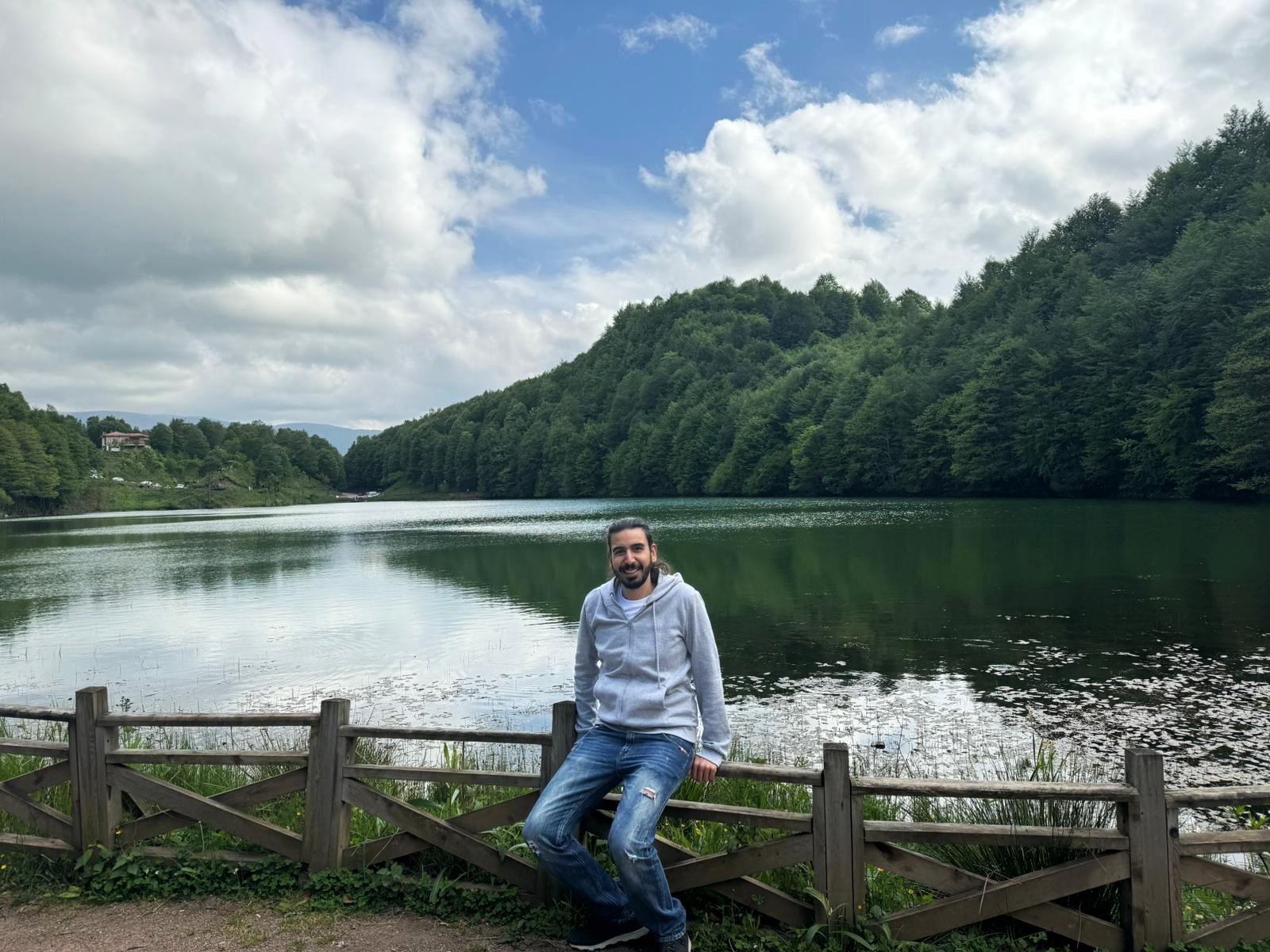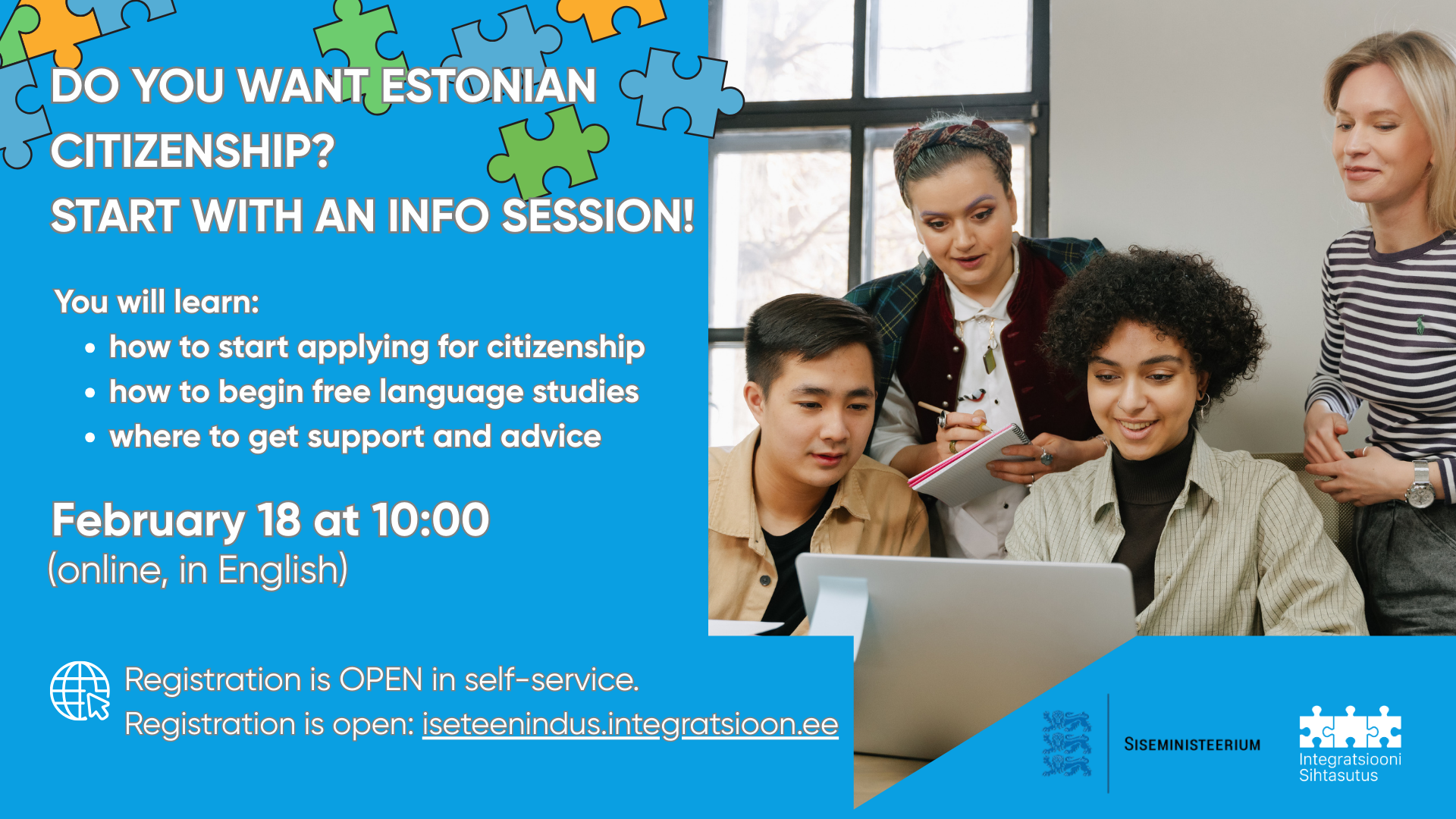It’s 3 AM. Athens is still celebrating New Year’s Eve when, in the early hours of 1 January 2020, Umut Can Ağar— a Turkish-born professional—arrives home after a night spent with friends. He unlocks the door, grabs his suitcase, and heads to the airport. Ahead of him, like a blank page, lies the beginning of a new chapter: moving to Estonia. He knows only where he will start working in a few days’ time. Everything else is yet to be discovered.
Now, six years have passed since Umut turned that blank page and moved to Tallinn. Before relocating to Estonia, he had been living and working in Greece. “Things had become monotonous,” he recalls. “I wanted to challenge myself. I wanted to grow. I was looking for opportunities — developing countries, fast-paced countries.”
At first, his eyes were set toward the North “I was just looking at the Nordics, to be honest. And I was like: ‘Okay, Sweden, Finland… Estonia? What’s that?’”
The answer turned out to be far more compelling than he expected. As Umut began researching the country, he discovered a small Baltic state rapidly gaining global attention for its startup ecosystem. The success stories of Wise, Bolt, and other fast-growing tech companies suggested that Estonia—despite its size—could offer room to grow, both professionally and personally.
Looking back, Umut laughs that his decision was almost an experiment in contrast. “In Greece, I had a really lively social life. The weather was amazing. The food was great,” he says. “And I asked myself: ‘Where is the country where they don’t have this?’”
A Leap into the Unknown
An explorer by nature, Umut holds a Master’s degree in Chemical Engineering and brings with him a strong background in voluntary work. Over the years, he had worked as an Erasmus+ project coordinator and with several NGOs in Turkey and Greece. New environments and unfamiliar cultures were not something he feared—they were something he actively sought out.
While still living in Athens, he began applying for jobs in Estonia and eventually received an offer. “My first job here was as a customer support agent,” he says. What followed was a period of rapid growth. “I had the opportunity and I worked to be a Team Lead, then Operations Lead, Site Lead, Head of a Department, and so on.”
From the Loud South to the Quiet North
Umut’s first impression of Estonia was far from a fairy tale. It was January, and the weather was unforgiving. “I really don’t like that type of cold where it’s not properly cold but slushy,” he says. “Sometimes it snows, then it melts. It’s not the nicest weather. And I arrived right in the middle of that.”
But instead of withdrawing, Umut did what felt most natural to him: he put himself out there. During his first year, he actively sought opportunities to meet people and understand the country. “I joined every event I could find: pub crawls, free walking tours—anything you could imagine.”
What surprised him most was the quiet. Compared to Turkey or Greece, Tallinn felt almost surreal. “Sometimes the streets were completely empty,” he says. “I don’t remember ever seeing empty streets before in my life.”
He recalls one evening from his first year in Estonia. He had gone to a small café hosting a live band presenting their new album—with free entry. In Greece, he says, such an event would have meant crowds spilling into the street. “But there were only three tables with people. One was mine. Another had three people. The third had a few people who clearly knew the band personally. I was blown away. There’s a free concert and no crowds? That didn’t make any sense.”
Years later, Umut admits Estonia has changed him. “Now I’m more Estonian,” he says, laughing. “I see a concert and I think: ‘It starts at nine o’clock. It’s in the Old Town. It’s minus six degrees outside. I have work tomorrow…’ I start finding reasons not to go. This is me now.”
Knowing Where and How to Ask
One of the biggest turning points in Umut’s adaptation came through the Settle in Estonia programme and the networks that followed. He completed the A1 Estonian language course and nearly finished A2, but the real impact went beyond language learning.
“At one event, I met someone from the Settle in Estonia team,” he says. “They told me there is this website that I can go and check for further information. From that website I found other websites. There I found different opportunities, different consultations, different everything. It was an eye-opener.”
Umut admits that his Estonian language skills are still not where he would like them to be—enough to order coffee, but not for deeper conversations. However, moving through the language-learning system connected him with professional networks and public services. He describes, for example, particularly positive experiences with the Police and Border Guard Board regarding residence matters, and with the Estonian Unemployment Insurance Fund while getting career consultations. He also received helpful guidance when exploring the process of founding an NGO.
“They were all really helpful. They explained everything, answered all my questions, and always replied to my emails. Once I got into that professional network, I received exactly the support I needed.”
The key, he says, is knowing how to ask. “In Estonia, people are helpful, but you really need to be specific. If you know what to ask or who to ask, you get amazing support. But if you’re like: ‘Hey, I would like to learn more about this,’ they will just give you a Google link.”
Living Like a True Estonian
For a long time, Umut managed comfortably in English—as many immigrants do. In Estonia, especially among younger generations, this is rarely a barrier. But over time, he realised that English is enough to survive, but not to fully belong.
“If you really want to get the best out of this country, you need to learn the language,” he says. “Not because you need it to do your taxes—everything is digital and easy—but to actually understand the culture and everyday life. Otherwise, it’s just work and home. You’ll get by, but you’ll miss out on a lot.”
Some things that once seemed strange have now become his favourite parts of life in Estonia. Mushroom picking, for example, has turned almost into a ritual. “I love nature and forests,” he says. “It’s therapeutic. You forget your phone, your worries, everything. Especially in September and in October after the rain, you go into the forest and it’s a different climate. The quietness of nature is unbelievable. You just walk and you hear your crunching steps. That’s so beautiful.”
And then there is the sauna.
Umut’s first sauna experience took place deep in the forest, while visiting a ranger during a friend’s documentary project. “There was a wooden house in the middle of nowhere. We ate deer and boar meat. Then the ranger prepared the sauna,” he recalls.
“You sit in an 80–90-degree sauna for ten minutes, then step out into the snow, jump into an icy lake, and look up at a clear, star-filled sky. It felt like a movie scene—incredibly euphoric.”
Looking Ahead
Today, Umut sees his future in Estonia—at least for the coming years. “Professionally, my experience has been really good,” he says. “If you’re curious and proactive, there are opportunities. But if you come here and wait—sorry, no one will come to you.”
Ideally, he hopes to find a role that allows him to stay based in Estonia while travelling regularly—combining movement with the stability he has built in Tallinn.
Umut’s Advice for Starting Fresh in Estonia
- Be proactive—opportunities don’t always come to you
Reach out, ask questions, and don’t hesitate to contact people directly. Even if you feel unsure or slightly out of place, a simple email or message can open unexpected doors.
- Be patient and manage your expectations
Things don’t always move at your preferred pace, whether it’s a doctor’s appointment or a reply from someone you’ve contacted. In Estonia, people tend to plan ahead and respect each other’s time. If one option doesn’t work for you, look for another—and don’t let a delay discourage you.
- Arrive with an open mind and stay curious
Let go of expectations and discover Estonia as it is. Explore beyond the bigger cities, accept the climate and local habits, and allow yourself time to adjust. What feels uncomfortable at first often becomes part of the charm.
- Always take your vitamin D
Vitamin D (and a hot sauna) help you get through the cold, dark winters.

The Settle in Estonia Programme is a free educational programme provided by the Estonian state which is intended to help the foreigners who have arrived in Estonia to adapt and become accustomed to local life more easily. We offer courses for people who have come to live or study in Estonia and have lived here for less than 5 years. For example, war refugees to whom Estonia offers international or temporary protection, as well as people who have come to Estonia to work or do business here or relocate with their family member. The adaptation program The Settle in Estonia Programme is free for participants. We offer language training and other courses to help you cope with everyday life in Estonia. Read more and register: https://integratsioon.ee/en/kohanemine. The adaptation programme is co-funded by the European Union and the state budget.


